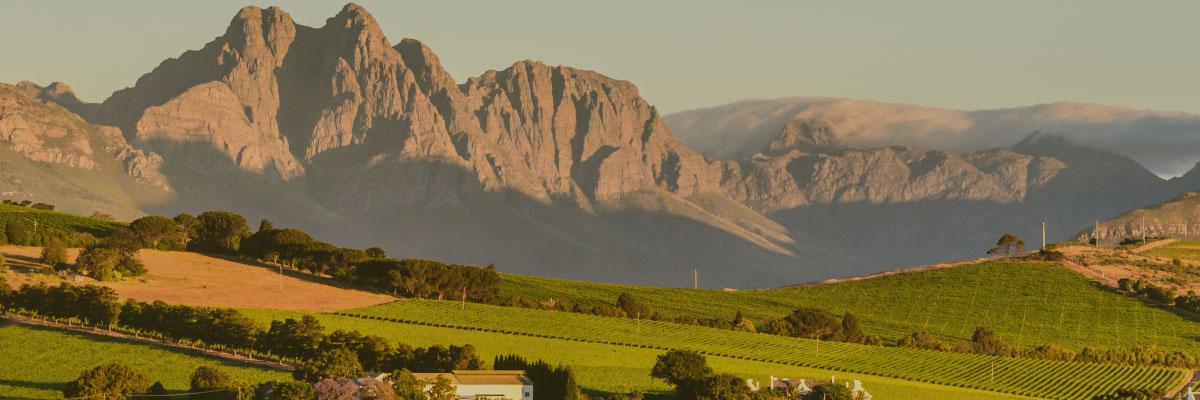(Don’t sue me Al Gore) But here’s an inconvenient truth: South African wines are too cheap. Grossly. I love my $1 (R20) beer and $2 (R40) fish n chips as much as the next guy; but when it comes to wine, this battle over low prices is, in my opinion, the single greatest threat to the industry in this country. As we reluctantly drift into what feels like day 1 million of the second ban on all sales of wine in SA, it’s time to discuss the elephant in the room.
Almost everywhere else in the world, there is a clear distinction between cheap wine and boutique wine. When you’re having 30 relatives with varying political views over for Christmas dinner, you’re going to need volume not quality – and you know exactly which $4 (R90) bottles at the grocery store will do the job. However, when you go visit Napa and you’re sitting atop a mountain overlooking miles and miles of vineyard and forest, as the winemaker him/herself shares the struggles and triumphs they endured that vintage; you don’t think twice about the $40 (R690) Rosé you share with lunch. On this day, you’re not buying alcohol – you’re buying a memory. You’re purchasing a story; a glass of art. These two scenarios represent two very different brands, wineries, and functions within the wine industry. The cheapest 20% of labels at any bottle shop or grocery store are not meant to compete with the other 80%. The latter is wine, whereas the former is a product; mass-produced from a company that has scale, investors, and a minimum viable quality that’s easy to hit year after year.
Here in SA, the lines have been blurred between these two scenarios and it has distorted consumer perception on pricing and quality. Boutique, family wineries are competing in the same price tiers as the giant, factory-esque wine producers because they’ve been given no choice. By seeing so many of these smaller, iconic, family-owned wine estates competing in that $3-5$ (R60-R100) price range just to move bottles, consumers have accepted this price range to be normal for the exceptional level of wine that is being produced in this country. And while a bargain is always great – the consequences of these prices on the smaller wine estates is catastrophic – leaving many one bad vintage (or one pandemic) away from going under.
South Africa is the oldest New World wine region in the world. With that, it has some of the strictest wine laws in the world. It’s the only place that I know of where winemakers actually face jail time for ‘forcing’ things in the cellar and not playing by the rules. Every wine before being sold must first go to a panel of winemakers to be tasted to ensure only proper representations of each cultivar are coming out of SA. All of these rules were put in place to ensure that South Africa has a seat at the table when the best wine regions in the world are being discussed. And price, to me, is the one thing that threatens our seat at that table. And even more, it’s what threatens the livelihoods of those who have dedicated their careers to getting SA that seat. Please understand, this is not because a good wine must be priced high to be taken seriously. Rather, pricing is so low that it is smothering talent, creativity, and the relentless pursuit of an exceptional wine. To put it simply, SA pricing rewards yield over quality – much like the American wine industry immediately following prohibition.
Over the last 15 years in South Africa, 37% of primary grape producers have disappeared (WOSA). The number of producer cellars have dropped by 31% (WOSA). And most significantly, the total litres of wine exported from South Africa has fallen off a whopping 40% since 2013 (WOSA). There are many factors behind these numbers; but they can all be traced back to the stresses placed upon producers to compete at such low pricing. These pre-pandemic numbers are alarming. However, knowing firsthand the struggles so many in the South African wine industry are now facing, the post-pandemic figures will be catastrophic.
Sure, some things are cheaper in South Africa that allow us to keep pricing, on average, lower than other countries. However, the majority of the wine industry here is still dependent on imports for equipment and supplies and therefore subject to foreign currency. Barrels, pumps, tanks, bottles, corks, screw caps, etc. are typically purchased from outside of SA. And currently, the exchange rate from Rand to Euro is 19:1.
What’s the solution?
Quality over quantity. From an industry perspective, I think the solution has already began to take shape. Every day I’m finding more and more exciting new labels from wine farms that celebrate the best they have to offer. Winemakers that push the boundaries. Sub labels that are bringing wine back to art vs just another SKU. Experimental wines, barrel selections, winemaker passion projects, etc. They consist of just a handful of barrels and are sold at 200% of the estate’s mean price. Letting our passion lead and valuing ourselves enough to be able to continue to push the boundaries on what SA wine can be year after year is the only way.
From the consumer’s side, we need a separation between alcohol and wine. We need to look beyond the bottleshop shelves and see wine for the story, struggle, and beauty that it is. Our wines are so much more than a price tag; they are a story. Let us share our passion, our art with you. If it resonates, fantastic. Tell a friend. Show your family. Hopefully buy a bottle. And if doesn’t, keep looking. South Africa is one of the most diverse wine regions in the world – you’ll find a wine and a story that speaks to you and is worth your business. For me personally, here are a few of the stories resonating most with me right now:
The conservation commitment of Lomond
The cowboy-esque, unintentionally natural wines of Herold
The larger-than-life winemaker at Giant Periwinkle making the most elegant reds I’ve ever tasted
The proof that quality doesn’t mean convention from The Fledge & Co
In short, we need to treat wine as art. Find what speaks to you and support it. Celebrate it. Cherish it. Pay for it. If we don’t value our own wines, why would the rest of the world? A rising tide floats all ships.


